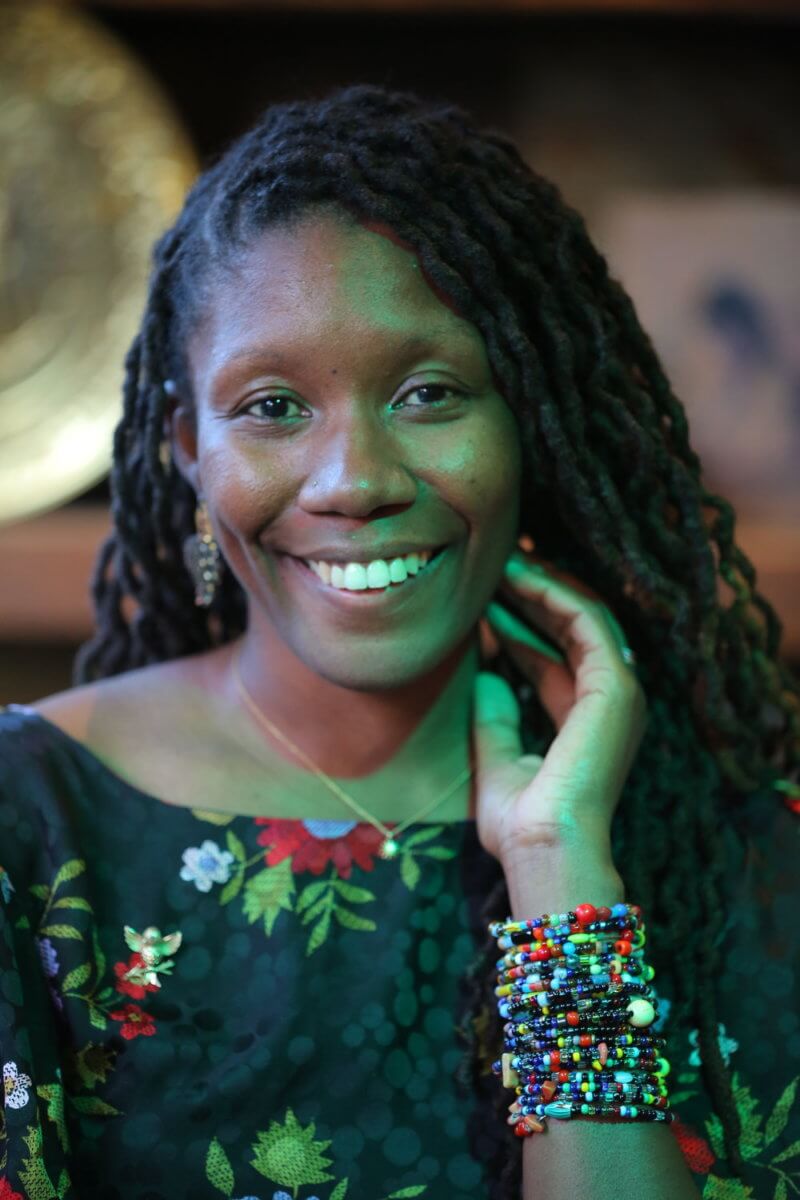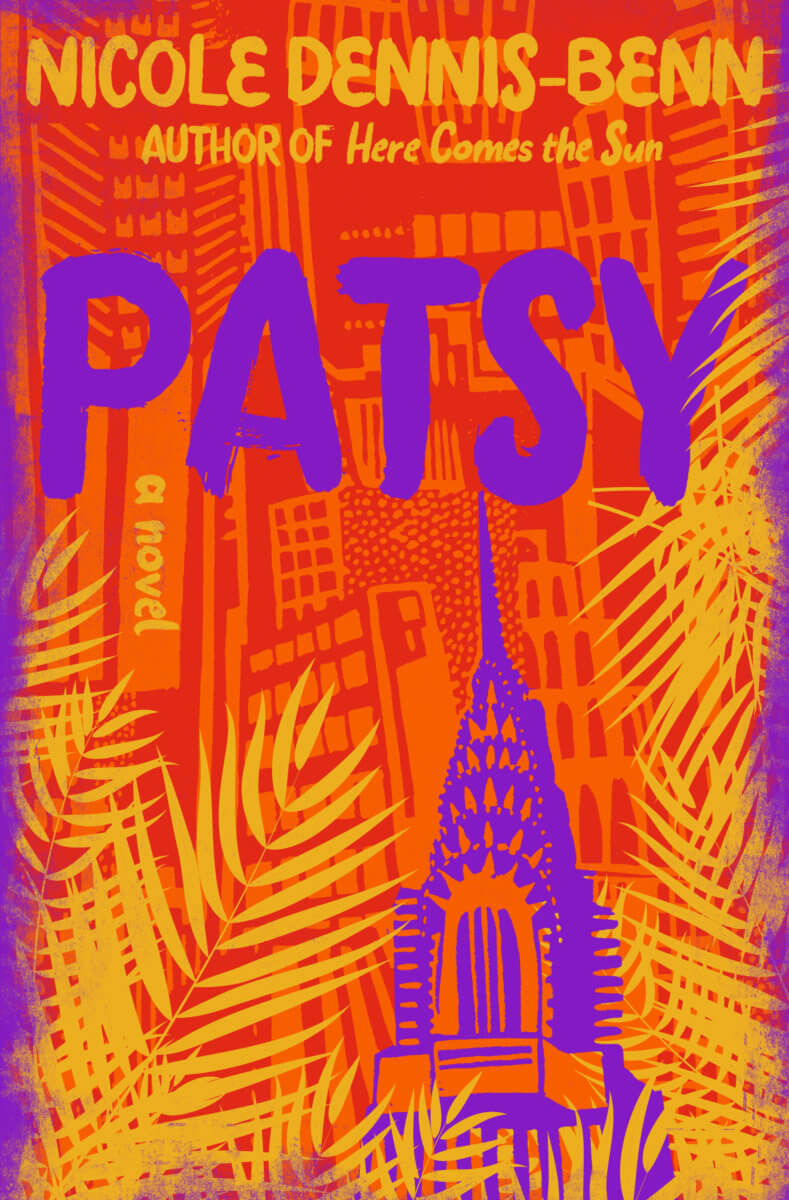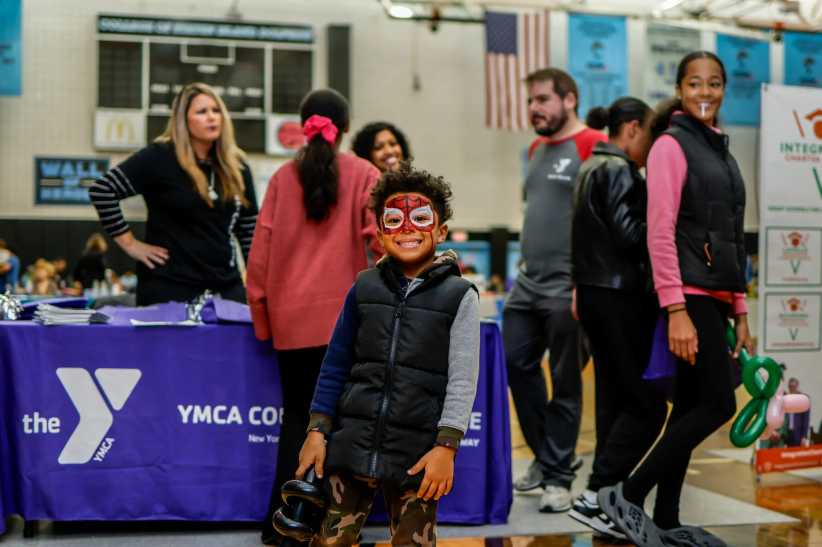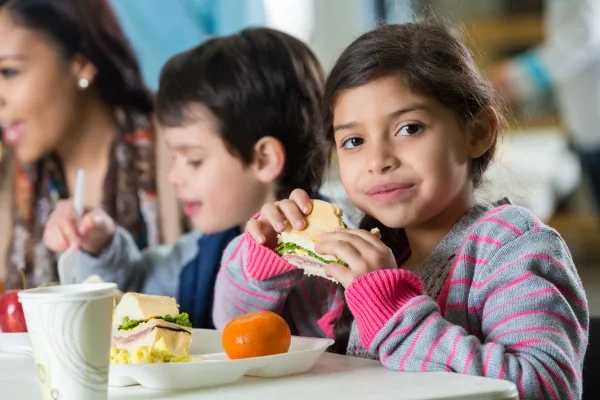
New York Family’s Parent’s Book Club November Pick is Patsy, by Nicole Dennis-Benn. In the book, Patsy leaves her 5-year-old daughter, Tru, behind in Jamaica in search of love and a better life in America. But when Patsy arrives in Brooklyn, she discovers that America is not what she thought, and meanwhile, Tru struggles with her own questions of identity and sexuality. Weaving through the lives of Patsy and Tru, Dennis-Benn presents a passionate, moving, and fiercely urgent novel that gives voice to a woman who looks to America not to give a better life to her family back home, but instead for the opportunity to choose herself first.
Dennis-Benn is a Lambda Literary Award winner and a recipient of the New York Foundation for the Arts Artist Grant. Dennis-Benn has previously taught in the writing programs at Princeton University, the University of Pennsylvania, NYU, Sarah Lawrence College, and City College; and has been awarded fellowships from MacDowell Colony, Hedgebrook, Lambda, Barbara Deming Memorial Fund, Hurston/Wright, and Sewanee Writers’ Conference. Dennis-Benn was born and raised in Kingston, Jamaica. She holds a Master of Public Health from the University of Michigan, Ann Arbor, and an MFA in Creative Writing from Sarah Lawrence College. She lives with her wife in Brooklyn, New York.
For other reads, check out our last month’s Parent’s Book Club Pick, Megan Miranda Talks With Us About The Last House Guest

What was your motivation for writing Patsy, and what do you hope that readers take away from the novel?
I’m an immigrant myself, but when I came to the United States, it was more for college. Yet as I was actually coming into myself in New York City, I realized that there are other immigrants around me who do not have this opportunity. I started teaching at the College of Staten Island, and I would commute with these individuals who were going off to their various jobs as construction workers and nannies. My imagination kicked in, and I started wondering who they were before they left their country, what they brought with them, and what they left behind. And that’s how Patsy came to be. Then I was looking up at the subway advertisements, and I saw the beautiful beaches and signs of Jamaica. There’s the irony of us hustling to work, but here are these ads appealing to tourists to go back to our country for things we couldn’t partake in. We had to come here to America to make life a lot better for ourselves and, for the most part, for our families as well.
I really want readers to actually emphasize with a character like Patsy. When you walk around, especially in a place like New York City, there are so many immigrants and also so many mothers who are unwilling to raise their own kids, women who happen to choose themselves because they weren’t given the opportunity to find their own identities. Creating a woman like that on the page is important to me, and so I hope my readers will also see that and become more empathetic towards those individuals.
I’m interested in the title of the novel. My own interpretation is that not only is this Patsy’s life story, but this novel is really about Patsy taking control of her own life. It’s about wanting something more and going after it, even if you have to make sacrifices along the way. Patsy’s a character and she’s the novel. How did you come up with the title, and what is the significance behind it?
Patsy is a typical Jamaican woman’s name. When I tell people my book’s name is Patsy and they’re Jamaican or Caribbean, they’re like, “oh we know a Patsy”, and that’s really my intention behind that: to use this common name, Patsy. We are all Patsy’s in that sense of the humanity of this individual, this one character, who’s in search of her own identity, who’s actually in search of her place in the world, and what she has to go through to be more confident in herself. I think anyone can relate to that, no matter what culture, no matter what background.
Although this is a work of fiction, several aspects of the novel relate to your own life, as you were born and raised in Jamaica and now live in Brooklyn. There’s been a lot of talk about the increasingly popular genre of autofiction, in which writers take inspiration from their own lives and use it as a basis for a fictional story. Would you consider Patsy a work of autofiction?
I wouldn’t classify it as autofiction in that sense, because only 20% of it is probably autobiographical. And that 20% of it is just me migrating to the United States for better opportunities. Patsy, she took another trajectory. She’s coming here undocumented. She’s coming here as a mother who refuses to go back, who refuses to acknowledge her child there. It’s the basis of what she went through as a first-generation immigrant, that’s all, in terms of similarities between us. Everything else is fictional.
The novel is very much about motherhood, seen through Patsy, Mama G, Marva, and other mothers who Patsy meets along the way as a nanny. What drew you to unpack the complicated nature of motherhood?
I myself was questioning motherhood in my life. But I had a choice. For me, it was me and my wife trying to build our family, and I had that luxury of saying okay, I’m at a point of my career now where, why not have children? But I thought to myself, what about those women who never had that choice? What about those women who, it happened to them really young, and they had to grow into motherhood, and what if they never grew into motherhood? I was exploring that in my head and writing this complex story of, what if I wrote a character in my book, who actually happens to be that woman who says this is not for me, I want to get away from this. I’m always asking questions with my fiction. It’s always about unpacking: what am I writing against? Because so many places, in the media and books, I see women who are conditioned to be mothers, so my mind always goes to that place where, what if there’s one woman who does not feel that she can be a mother.
I hate writing truth. I even say this in my Princeton workshops as well: truth bores me. I would never write that mother who’s a typical mother. I would never write that immigrant who’s a typical immigrant. I want somebody who’s really different from what we’ve seen in the past.
Not only does this novel examine motherhood, but fatherhood is on display, especially in the relationship between Tru and her father. After writing Patsy and embarking on this journey of parenthood through the novel, if you could give one piece of advice to parents, what would it be?
Let your children be. What we do as parents, or even as aunties or uncles or godparents or whoever we are, sister or brother, we put babies in a gendered box, and that can be judgmental. Don’t ask questions like: Who’s your boyfriend? Who’s your girlfriend? Don’t put them in blue or pink; don’t do anything like that. Let them find themselves. In a book like Patsy, there’s the expectation that girls should be mothers. Do not hand us dolls; hand us other things that we like to play with, like trucks or puzzles. Have us think even bigger than that.
Language seems central to this novel in dialogue and the characters’ shifting identities. In your opinion, what is the relationship between language and identity?
Language is identity, and for me, writing Jamaican characters, it’s important to include their dialect within the dialogue, because it wouldn’t feel authentic to have two Jamaicans speak to each other in standard English. I wanted to recreate my identity back in my work as an artist, since I was raised to shun Patio. I was raised that to speak Patio was that you’re backwards or uneducated. Now that I have the ability to write it into my work, I’ll do that.
This novel is timely in many ways, but one of the most prominent is the way that it speaks to the LGBTQ+ community. Tru struggles her whole life to feel comfortable in her own body and Patsy struggles because society prevents her from being with who she loves. While we have certainly come a long way in terms of supporting the LGBTQ+ community, in your opinion, do we still have a long way to go, as a society?
I think we still have a long way to go. I worry that we are celebrating too soon, because we make one step forward and then a few steps back. For example, just a couple months ago, some guy denied a cake for a same-sex wedding. In my mind, I’m thinking, we still have a lot of work to do. And when I read books and watch the media, lesbians are still invisible. We do see gay men, especially white men, but we never see lesbians, and we really never see lesbians of color. For me, it’s important to write this into my fiction and make people aware that we exist as well.
In your opinion, how does the immigrant story, the history of people who have immigrated to a new country and began a new life, relate to the female literary tradition? In other words, Virginia Woolf argues in A Room of One’s Own, that women have a unique perspective that is evident in their writing. Do you think that this unique perspective of women extends to the history of immigration? Is the history of immigration different for women as compared to men, and do women, therefore, write it in a different way in literature?
I believe so, for sure, because men migrate all the time. Especially in Jamaica and the Caribbean, they come to America or Canada or London, and people expect them to be the breadwinners. When a woman does this, it’s a huge deal. But for me, writing my fiction, it’s also about sexual identity, because so many works of fiction will shy away from women’s sexuality. We have desires: we’re human beings. And I wanted to layer that with the motherhood aspect as well. People put motherhood on a pedestal, like if you’re a mother, you’re automatically a stoic figure, who is a goddess or something: not having desires of your own, yearnings of your own, or even flaws. In terms of the immigrant perspective, here’s this woman who dares to not be altruistic. She’s not sending that money for her family. She’s not looking back at her child. She’s trying to survive and save her own self first before she can do anything else. Yes, at first I did judge that character in the beginning, but then I felt empowered by Patsy.
There are several references to feeling invisible in this novel, as well as questions of existence and identity. Patsy really explores this question of what makes for a meaningful life. Is it career? Motherhood? Family? Romantic love? After writing this novel, what would be your answer to what makes for a meaningful life?
Finding home within yourself, because at the end of the day, it was really about that question: where is home? Home was not Jamaica for Patsy. That’s where she was born and raised, but she was not able to express her true identity. She was not able to be mobile. Coming here to America, she thought she would find that, and she didn’t find it; in fact, she found alienation, being an undocumented immigrant. For her, it’s about finding home within herself, and Claudette allowed her to find that home. In terms of Tru, she had the same kind of challenges as Patsy in Jamaica, but what Tru found that Patsy did not have was community. Yes, she couldn’t exist as a gender nonconformity person in Jamaica. She’s walking on the street, looking like a boy, and also playing with these boys on the soccer field. She feels free playing soccer, using her body in that way. As women are so restricted, we’re told we can’t do certain things, but here she is, tapping into how powerful her body is. So that, again, is finding freedom within herself.
What are some of your favorite spots in Brooklyn?
This is actually my favorite block (interview held at Rosalia’s Café, 615 Nostrand Avenue). Meme’s, which is about two blocks from here, sells really nice juices. I also love going on Eastbound Avenue; that’s really where most of Patsy was set and written. I absorb a lot from the Caribbean immigrants there in terms of language and what I’m seeing. That’s where I get my visuals.
When you’re not writing, what else do you like to do in your free time?
I love museums. I’m always at museums. I also love watching an independent film somewhere or on TV at home: just to relax my mind a little bit. And hanging out with my family, my wife. We explore a lot, riding our bikes all around.
Do you have a favorite museum?
What was your favorite moment or memory from the Patsy book tour?
I’ve had great moments, but one of my most memorable moments was being at a hotel in LA. I walked into my room and saw a whole bucket of red-stripe beer, and a nice note from the clerk saying “welcome, hopefully this will help you out on your Patsy tour”. She knew who I was, and I was like oh my god. I called my publisher, and I asked her if they set this up, and they said no. She knew, somehow, I was coming, and she went ahead and did that. I felt so good.
Did you always know that you wanted to write fiction novels?
I did. I love making up stories. My imagination runs wild. I love writing fiction more than anything else. People ask me if I would ever write a memoir, but I think fiction’s more fun. You have more autonomy. And I feel like if you’re going to write a memoir, you have to interview, you have to actually ask if it’s okay, and I don’t want to go through all of that. Although I would never write a memoir, I’ve been reading more memoirs lately. I’ve been drawn to Trevor Noah’s Born in Crime. I just finished it; It’s amazing.
What is your book recommendation of 2019 or coming out soon in 2020?
I’m going to recommend Sarah M. Broom’s memoir, The Yellow House. It’s a great read, published this past August. It’s set in New Orleans, and captures this family living there. You think about New Orleans as a tourist destination, but here’s a family that’s really working there and dealing with different things that families deal with. She writes really well about that, tapping into identity and all these things that I appreciate, especially in my own writing.













